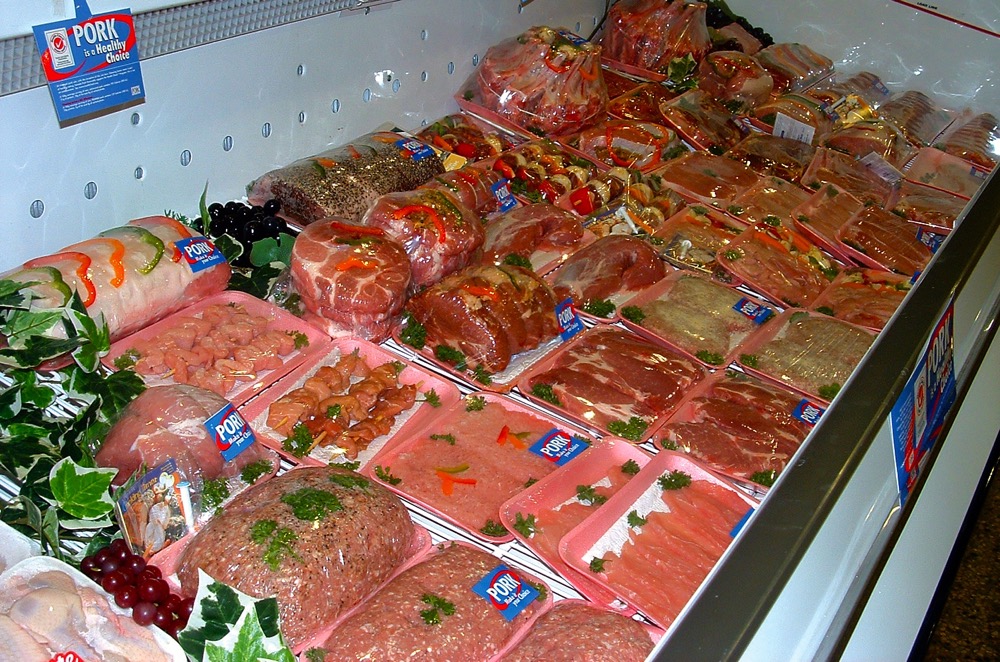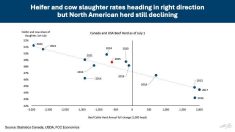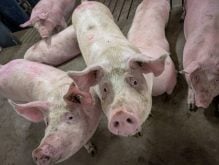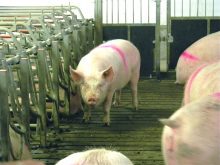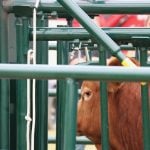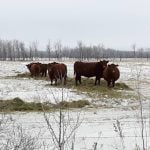The Farm Products Council of Canada will hold public hearings on a proposed national pork promotion and research agency funded by farmer levies. It would replace provincial bodies across the country and impose levies on imported pork and pork products.
The council is currently collecting comments on the agency developed by the Canadian Pork Council. FPCC will announce the dates for the public hearings in early November. After completion of the hearings and a review of the evidence, the council will make a recommendation to the government.
Read Also

The sneak peek of Manitoba Ag Days 2026
Canada’s largest indoor farm show, Manitoba Ag Days, returns to Brandon’s Keystone Centre Jan. 20-22, 2026. Here’s what to expect this year.
A similar agency, Canada Beef, already exists for the cattle sector.
In a notice to the industry, the council says it needs to determine the level of support for the agency, its effect on farmers and importers, how the levies would be collected and what powers the agency should have.
The pork council submitted the proposal at the end of July after several years of pulling it together, says spokesman Gary Stordy.
“The objectives of the national agency will centre on promoting the consumption of pork products in the domestic market, furthering development of export markets for Canadian pork and supporting the conduct of scientific-technical and market research initiatives. These objectives are intended to strengthen markets for hogs and pork, optimize production efficiencies, increase domestic consumption and enhance financial returns from the marketplace to the benefit of participants across the Canadian pork value chain.”
Pork producers in nine provinces already fund market promotion, development and research activities. While these efforts have been successful, “the increasing complexity of the issues impacting the sector, their interwoven nature and the escalating cost of addressing these concerns means that a more strategic, co-ordinated approach is required.”
The pork council says there are two primary reasons for creating such an agency. “In several provinces the current levy being collected and spent on research, promotion and market development is decreasing. An agreed national levy amount will be more uniform, equitable and stable.
“Second, imports have never contributed towards the eligible activities. An equivalent levy, applied to live animals, pork or pork product imports, could be expected to generate up to an additional $2-million-plus gross per annum.”
Approval by FPCC would meet international trade rules for import levies, the council says. “Provincial boards would continue to use their existing levies to carry out eligible activities at the provincial level but would provide copies of their audited annual reports, prepared for their respective provincial supervisory bodies, to the national agency.”
A national agency would be better able to fund domestic and export market promotion initiatives as well as increased “animal science and technical research aimed at improving production efficiencies and competitiveness of pork in domestic and foreign markets.”
Canada Beef has been able to generate an economic return of $9 for every $1 collected in levies, the brief noted. “Canada Beef Inc. has also reported that the total industry investment leveraged through its Market Development Program saw every dollar it invested result in industry partners expending $65.”
The council says the agency would be able to better explain to consumers issues such as animal nutrition, animal welfare, quality assurance, animal health and environmental impact.
CPC noted that over the past five years (2010-14), Canada imported 198,000 tonnes of pork and pork products on average per year. While live hog imports averaged a mere 2,600 head per year over this same period, that could increase in future with given improvements to the U.S. animal health status.

